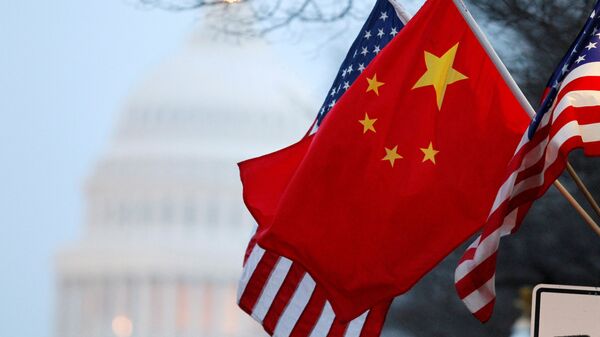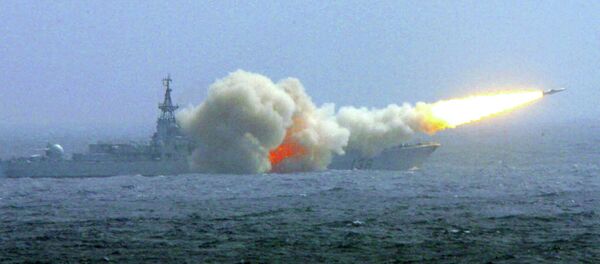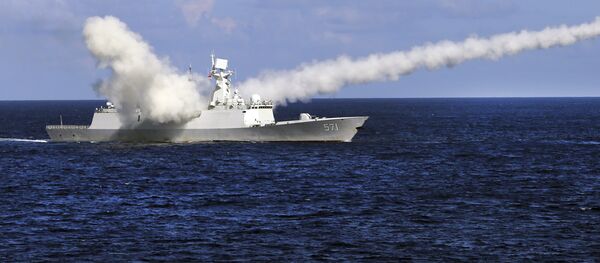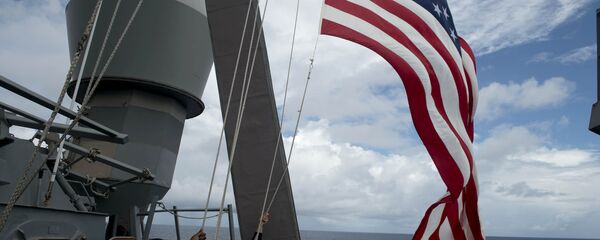"The United States is going to wage a 'new cold war' against China, seeking to comprehensively contain it," says Li Yi, a researcher at the Chongyang Institute for Financial Studies at Renmin University of China. "Attempts to play the Taiwanese card are becoming tougher, but it is still unclear how far the United States would go."
On October 31, William Brent Christensen, the new director of the American Institute in Taiwan, largely regarded as a de facto US representation on the island, told reporters that "any effort to determine Taiwan's future by other than peaceful means…is of grave concern to the United States."
Christensen also underscored that the US would continue to support Taiwan's "substantive role" in the international community.
Earlier, three former Taiwanese allies — El Salvador, Burkina Faso and the Dominican Republic — severed diplomatic relations with Taipei and established official ties with Beijing.
"Most of Brent Christensen's speech at the press conference echoed old ideas and reiterated the US government's principle position," Li told Sputnik China. "First, he said that the United States would support Taiwan so that it would have sufficient capabilities for self-defense against the threat of force. This statement is based on the 1979 Taiwan Relations Act, which will reach its 40th anniversary next year. It has been the first press conference since Christensen took office. Therefore, he was more focused on outlining the basics of the US's Taiwanese policy over the past 40 years."
He recalled that in 1982, Washington and Beijing reaffirmed fundamental principles of Sino-US relations, defined by the Shanghai Communiqué of 1972 and The Joint Communiqué on the Establishment of Diplomatic Relations of January 1, 1979.
"The United States then took an obligation that the quantity and characteristics of weapons sold to Taiwan should not exceed the levels set after the establishment of diplomatic relations between the United States and China. At the same time, the United States was ready to gradually reduce arms sales to Taiwan, to finally resolve the problem in due course," the academic explained.
Previously Washington adopted the Taiwan Travel Act, which was signed into law by Donald Trump on March 16, 2018. The Chinese academic pointed out that this legislation provided senior US and Taiwanese officials and military with an opportunity to make reciprocal visits.
"This completely contradicts the three Sino-US communiqués and violates the 'one-China' principle," Li stressed, adding that if Washington and Taipei continue to boost bilateral relations, "mainland China will not remain patient" with this.
Washington Picks Taiwan Card Amid Worsening US-China Relations
Deputy Director of Moscow State University's Institute of Asian and African Studies Andrey Karneev underscored that the Taiwan card had yet again come to the forefront in US-China relations.
"At one time it was the military support of Taiwan by the United States that became the main obstacle to the establishment of diplomatic relations between Beijing and Washington," the Russian scholar recalled.
Meanwhile, Washington continues to flex its military muscle in the region: On October 22, two US Navy ships went through the Taiwan Strait, prompting criticism from Beijing.
In late September the United States approved the sale of spare parts for F-16 fighter planes and other military aircraft worth up to $330 million to Taipei.
"This proposed sale will contribute to the foreign policy and national security of the United States by helping to improve the security and defensive capability of the recipient, which has been and continues to be an important force for political stability, military balance, and economic progress in the region," the Pentagon's Defense Security Cooperation Agency stated.
In response, Beijing called upon Washington to abandon the planned sale and cease military contacts with Taiwan. The Chinese Defense Ministry issued a statement denouncing Washington's move and underscored that the Chinese military had a "firm and unshakable" determination to protect the sovereignty and territorial integrity of the country.
The views and opinions expressed by the speakers do not necessarily reflect those of Sputnik.







